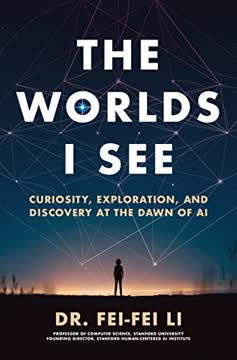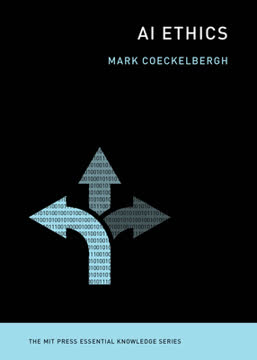つの重要なポイント
1. コード化された視線:AIシステムにおけるバイアスの解明
「デフォルトは中立ではない。それらはしばしばコード化された視線を反映しており、どの主題に焦点を当てるかを選ぶ力を持つ者の好みを示している。」
コード化された視線とは、技術を創造する者の優先順位、好み、偏見が、差別や抹消を通じて害を広める方法を指す。ジョイ・ブオラミニはMITで顔認識プロジェクトに取り組んでいる際にこの概念を発見し、システムが彼女の顔を検出するために白いマスクを着用しなければならなかった。この経験から、特に顔認識技術におけるAIシステムのバイアスを調査することになった。
主な発見:
- AIシステムは、暗い肌の個人や女性に対してしばしば性能が低い
- AIモデルを訓練するために使用されるベンチマークデータセットは、しばしば明るい肌の男性に偏っている
- これらのバイアスは、誤認逮捕や機会の拒否など、現実世界での影響を引き起こす可能性がある
ブオラミニの研究は、主要なテクノロジー企業の顔分析システムが肌の色や性別に基づく重大な精度の差異を持っていることを明らかにし、明るい男性と暗い女性の間で最大34.4%の誤差率があることを示した。
2. アートプロジェクトからグローバルムーブメントへ:アルゴリズム正義リーグの誕生
「私は引き下がるつもりはなかった。大学院生がテクノロジーの巨人に立ち向かうのは典型的な道ではなかったが、機械に見られるために白塗りでコーディングするのも同様に典型的ではなかった。」
**アルゴリズム正義リーグ(AJL)**は、ブオラミニのMITでの修士論文プロジェクトから生まれた。顔認識技術の限界を探るアートインスタレーションとして始まったものが、アルゴリズムの責任と正義を求めるグローバルムーブメントへと進化した。
AJLの使命:
- AIバイアスの影響についての意識を高める
- より包括的で公平なAIシステムを提唱する
- AIシステムのバイアスを監査するためのツールと方法論を開発する
- 政策立案者や業界リーダーと連携して責任あるAI開発を促進する
この組織の活動は、政策決定、企業の実践、AI倫理に関する公共の議論に影響を与え、学術研究とアクティビズム、アートを組み合わせる力を示している。
3. アルゴリズム監査:商業AI製品の欠陥を暴く
「私のクラスプロジェクトが私に対して機能しなかったとしても?明るい肌のクラスメートはそれを楽しんで使っているようだった。そしてもちろん、カメラが個人を追跡する結果を考えると、顔が検出されないことには確かに利点があるかもしれない。」
アルゴリズム監査は、異なる人口集団間でのバイアスや性能の差異を特定するためのAIシステムの体系的な評価である。ブオラミニの「Gender Shades」プロジェクトは、商業的な性別分類システムにおける重大な精度のギャップを暴露した画期的なアルゴリズム監査であった。
Gender Shades監査の主な発見:
- テストされたすべてのシステムは、暗い肌の女性に対して最も悪い性能を示した
- 最大の精度ギャップは、明るい男性と暗い女性の間で34.4%であった
- 監査は、主要なテクノロジー企業のAI製品でさえ、重大なバイアスを持っていることを明らかにした
Gender Shadesプロジェクトとその後の監査は、商業AIシステムの改善と、多様なテストデータセットと厳格な評価方法の必要性についての認識を高めた。
4. 感情的な監査の力:AIの影響を人間化する
「機械は私の女王たちを私が見るように見ることができるのか?機械は私たちの祖母たちを私たちが知っていたように見ることができるのか?」
感情的な監査は、アルゴリズムのバイアスの人間への影響を示すために芸術的表現と個人的な物語を使用する。ブオラミニのスポークンワード作品「AI, Ain't I A Woman?」はその一例であり、AIシステムが著名な黒人女性の画像を誤分類する様子を示している。
感情的な監査の影響:
- AIバイアスの結果を人間化する
- 学術界以外の広範な聴衆にリーチする
- 行動と政策の変化を促す
「AI, Ain't I A Woman?」のビデオはバイラルになり、ドキュメンタリー「Coded Bias」にも取り上げられ、AIバイアスとその現実世界での影響についての公共の認識を高めるのに役立った。
5. 抹消と戦う:テクノロジーにおける疎外された声を増幅する
「私の発見について黙っていることは害を防ぐことにはならなかった。なぜなら、これらのシステムはすでに開発中だったからだ。私が声を上げることで、非使用を含む代替の道を考慮する機会が提供された。」
抹消と戦うことは、AIとテクノロジーにおいて疎外された声を積極的に増幅し、現状に挑戦することを意味する。ブオラミニのメディア抹消や学術的なゲートキーピングの経験は、AI研究と開発における多様な視点の重要性を強調している。
抹消と戦うための戦略:
- 少数派の研究者や実務者と協力し、支援する
- メディアプラットフォームを使用して多様な声と経験を強調する
- 制度や企業に対してシステム的なバイアスに取り組むよう挑戦する
ブオラミニのドキュメンタリー「Coded Bias」と彼女のアドボカシー活動は、AI倫理と研究における女性と有色人種の貢献に注目を集めるのに役立った。
6. 学術界を超えて:政策立案者と公共との関わり
「議会はこれについて何かをするだろう。」
政策立案者との関わりは、研究成果を現実世界の変化に翻訳するために重要である。ブオラミニの議会証言や政府機関との協力は、研究者が政策決定に与える影響を示している。
主な政策関与:
- 顔認識技術について議会で証言
- AI権利章典の策定に貢献
- 法執行機関による顔認識の使用を規制するための地方の取り組みを支援
これらの努力は、AIシステムの精査の増加、提案された立法、政府のさまざまなレベルでの政策変更につながった。
7. AI開発における包括と排除のコスト
「AIシステムの設計と展開において、包括のコストと排除のコストを考慮する必要がある。」
包括と排除のバランスを取ることは、潜在的な利益と害を慎重に考慮することを必要とする。多様なデータセットはAIの性能を向上させるが、より広範な監視と制御を可能にする可能性もある。
考慮事項:
- AIの精度向上は、医療診断などの有益なアプリケーションを強化する可能性がある
- より正確な顔認識は、大規模な監視を可能にする可能性もある
- 特定のグループをデータセットから除外することはプライバシーを保護するが、そのグループの性能が低下する可能性がある
ブオラミニは、技術的な性能指標だけに焦点を当てるのではなく、AIシステムの社会的な影響を考慮することを提唱している。
8. アルゴリズム正義へ:研究から現実世界の変化へ
「私たちは法律が必要だ。アルゴリズムの責任、リモートバイオメトリック技術、データプライバシーに関する法案が年々提出されている。AIが私たちの生活に与える影響についての認識が高まる中、技術がどのように進化しても、私たちの市民権を保護する政府機関が必要だ。」
アルゴリズム正義は、研究、アドボカシー、政策変更、公共の関与を組み合わせた多面的なアプローチを必要とする。ブオラミニの大学院生から影響力のあるAI倫理学者への旅は、個人がシステム的な変化を推進する可能性を示している。
アルゴリズム正義のための主要な要素:
- AIシステムの厳格な研究と監査
- 公共教育と意識向上キャンペーン
- 政策立案者や業界リーダーとの協力
- 草の根の取り組みとコミュニティの組織化を支援
AI権利章典の発表とAI倫理問題に関する公共の認識の高まりは進展を示しているが、AIシステムが人権を尊重し、公平性を促進する方法で開発および展開されることを確保するためには、継続的な監視とアドボカシーが必要である。
最終更新日:
FAQ
What's Unmasking AI about?
- Exploration of AI and Society: Unmasking AI by Joy Buolamwini examines the intersection of artificial intelligence and social justice, focusing on how AI can perpetuate biases and discrimination.
- Personal Narrative: The book combines Buolamwini's personal experiences with rigorous research, detailing her journey as a researcher and activist in the field of algorithmic justice.
- Coded Gaze Concept: A central theme is the "coded gaze," which refers to how the biases of technology creators can be embedded in AI systems, leading to harmful outcomes.
- Call to Action: Buolamwini emphasizes the need for collective action to ensure AI serves humanity equitably, advocating for algorithmic justice and diverse representation in tech development.
Why should I read Unmasking AI?
- Timely and Relevant Topic: As AI technologies become more integrated into daily life, understanding their implications is crucial. Buolamwini's insights provide a necessary critique of these systems.
- Personal and Engaging Narrative: The book combines storytelling with research, making complex topics accessible. Buolamwini's journey offers inspiration and motivation for readers.
- Empowerment Through Knowledge: Reading this book equips individuals with the knowledge to question and challenge the status quo in technology, encouraging critical thinking about societal structures.
- Insightful Perspective: It provides a unique viewpoint from a leading voice in algorithmic justice, essential for anyone interested in technology's impact on society.
What are the key takeaways of Unmasking AI?
- AI Reflects Human Bias: AI systems are not neutral; they reflect the biases of their creators, leading to real-world consequences for marginalized groups.
- Importance of Diverse Representation: Buolamwini argues for the necessity of diverse voices in technology development to ensure AI serves all communities fairly.
- Call to Action: The book urges readers to engage in conversations about AI and its societal impacts, advocating for algorithmic justice and shaping the future of technology.
- Collective Action for Change: Buolamwini emphasizes the need for a united front against harmful AI practices, encouraging participation in movements for algorithmic justice.
What are the best quotes from Unmasking AI and what do they mean?
- "The coded gaze describes the ways...": This quote highlights how biases can be embedded in AI systems, leading to discrimination against marginalized groups.
- "We cannot have racial justice...": It underscores the urgent need for ethical considerations in AI development, particularly in sensitive areas like law enforcement.
- "AI will not solve poverty...": Buolamwini emphasizes that technological solutions cannot address systemic societal issues without addressing underlying social and economic structures.
- "Your silence will not protect you.": This quote underscores the importance of speaking out against injustices, particularly in the context of AI and technology.
How does Joy Buolamwini define the "coded gaze" in Unmasking AI?
- Definition of Coded Gaze: The "coded gaze" is how technology reflects the biases of its creators, leading to harmful outcomes for marginalized communities.
- Examples of Coded Gaze: Buolamwini shares personal anecdotes, such as her experience with facial recognition technology that failed to recognize her dark-skinned face.
- Broader Implications: The concept extends beyond race and gender, encompassing various forms of discrimination, including ableism and ageism.
- Call for Critical Examination: Buolamwini calls for a critical examination of technology to ensure it serves all communities equitably.
What is algorithmic bias, as defined in Unmasking AI?
- Definition of Algorithmic Bias: It refers to the systematic and unfair discrimination that occurs when AI systems produce different outcomes for different demographic groups.
- Real-World Implications: Buolamwini's research shows how algorithmic bias can lead to misidentification and wrongful arrests, particularly for people of color.
- Need for Accountability: Addressing algorithmic bias requires transparency and accountability from tech companies, with rigorous testing and auditing of AI systems.
- Impact on Society: The book provides examples of how these biases manifest in technologies like facial recognition, affecting marginalized communities disproportionately.
What are the implications of AI technologies on marginalized communities as discussed in Unmasking AI?
- Discrimination in AI Systems: AI technologies, particularly facial recognition, can lead to discrimination against marginalized groups, often misidentifying or not recognizing individuals.
- Real-World Consequences: Instances of AI failures have resulted in wrongful arrests and other serious repercussions for individuals from marginalized communities.
- Need for Ethical AI: Buolamwini advocates for ethical AI systems that prioritize the needs and rights of all individuals, emphasizing inclusive data and diverse representation.
- Urgent Accountability: The book underscores the urgent need for accountability in AI development to prevent discrimination and harm.
How does Unmasking AI address the issue of data collection and representation?
- Critique of Data Practices: Buolamwini critiques data collection practices that prioritize convenience over inclusivity, often lacking representation of diverse populations.
- Importance of Diverse Datasets: The book emphasizes the need for datasets that accurately reflect societal diversity to prevent biased outcomes in AI systems.
- Call for Transparency: Buolamwini urges tech companies to disclose data sourcing and demographics, essential for building trust and accountability in AI technologies.
- Impact on AI Development: Without diverse representation in data, AI systems will continue to perpetuate existing inequalities, highlighting the need for change.
How does Joy Buolamwini's work contribute to the fight for algorithmic justice?
- Founding the Algorithmic Justice League: Buolamwini established the organization to raise awareness about AI bias and advocate for equitable technology.
- Research and Activism: Her work combines academic research with grassroots activism, making her a prominent figure in the movement for algorithmic justice.
- Influencing Policy: Buolamwini's advocacy has led to significant discussions around AI regulation, including calls for moratoriums on facial recognition use by law enforcement.
- Community Engagement: She emphasizes the importance of community engagement in addressing AI harms, ensuring that affected voices are heard.
What is the significance of the "Gender Shades" project mentioned in Unmasking AI?
- Research on Facial Recognition: The "Gender Shades" project examined facial recognition systems' performance across demographic groups, revealing significant accuracy disparities.
- Impact on Industry Standards: The findings influenced major tech companies to reconsider practices and improve algorithms, prompting discussions about AI ethics.
- Raising Awareness: The project catalyzed broader conversations about representation and bias in AI, highlighting the need for diverse datasets and inclusive practices.
- Influence on Policy: It has served as a foundation for advocating policy changes to address algorithmic bias and ensure ethical AI development.
How does Unmasking AI propose solutions for algorithmic bias?
- Advocacy for Algorithmic Justice: Buolamwini calls for ethical considerations in AI development, encouraging conversations about societal impacts and equitable solutions.
- Diverse Representation in Tech: The book highlights the importance of including diverse voices in technology development to ensure fair AI systems.
- Policy Recommendations: Buolamwini suggests collaboration between policymakers and tech companies to create regulations addressing algorithmic bias.
- Accountability and Transparency: Emphasizes the need for accountability and transparency in AI systems to prevent discrimination and harm.
How can individuals contribute to the movement for algorithmic justice?
- Educate Yourself and Others: Buolamwini encourages learning about AI and its societal impacts, sharing knowledge to build an informed community.
- Advocate for Change: Participate in advocacy efforts, such as supporting legislation addressing AI bias and discrimination, and engage with local organizations.
- Challenge Harmful Practices: Question and challenge AI technologies that perpetuate harm, holding companies accountable for a just technological landscape.
- Empowerment Through Action: Individuals can contribute to a more equitable future by actively participating in movements for algorithmic justice.
レビュー
本書『Unmasking AI』は、AIのバイアスと倫理についてのわかりやすい探求で高く評価されている。読者は、ブオラムウィニの個人的な旅とテクノロジーの世界に対する洞察を高く評価している。多くの人々は、この本が情報豊かで考えさせられるものであり、アルゴリズムのバイアスに対処する重要性を強調していると感じている。一部のレビュアーは、回顧録のようなスタイルに言及し、より技術的な深さを望む声もある。全体として、この本はAIの社会的影響を理解するための重要な貢献と見なされているが、個人的な物語と技術的内容のバランスについては意見が分かれている。
Similar Books












